- Home
- Keith Douglass
Typhoon Season c-14 Page 2
Typhoon Season c-14 Read online
Page 2
“What happened?” the voice on the other end of the phone demanded after a single ring. Tai was surprised by the lack of protocol, which before now had always called for the exchange of inane passwords. The sound filter was working, though, imbuing the voice at the other end a constantly-shifting variety of tone, depth and even accent. Tai knew the owner of the voice only by his code name: “Mr. Blossom.”
But the big shock was that Mr. Blossom already knew that something had gone wrong during Tai’s patrol flight today. Tai had left his commander’s office not a half hour ago. Just how far, and how deep, did Mr. Blossom’s connections run?
Never mind. So long as Mr. Blossom believed he had a sound investment in the pilot Tai Ling, that was all that mattered. “My lead saw something he shouldn’t have,” Tai said. “I had to shoot him down. I reported it as an accident; I said he had a flame-out at low altitude and went into the water before he could eject. The incident will not be investigated; Hua was known for occasionally flying recklessly.”
There was a long pause, filled with the strange clicks and hums of a scrambler or random line-routing device. Not far away, a fat blond-haired child was squalling furiously as he was led away from the park. Tai visualized the child roasting on a spit.
Finally Mr. Blossom said, “Your lead did not report this sighting?”
“No. He wanted to destroy the aircraft before reporting it.”
“Then what you did… was the right thing to do. Congratulations.”
Tai did not respond. He didn’t feel that he had done the right thing, only that which had to be done. “The project remains on schedule, then?” he asked.
“Yes,” Mr. Blossom replied, and the line went dead.
0505 local (-8 GMT)
Lady of Leisure
South China Sea
“How does it feel to help finance your own biggest enemy, eh, McIntyre?” blared Myron Carstairs, waving a cut-crystal tumbler of Scotch through the air.
Martin Lee winced and glanced at his boss, Phillip McIntyre. But, as always, Mr. McIntyre remained unruffled. He just smiled, his hands folded in front of him, his feet spread slightly on the polished wooden deck of Lady of Leisure. A waiter offered him a tray of canapés; McIntyre shook his head politely.
“I don’t know what you mean, Mr. Carstairs,” McIntyre said. “Financing my biggest enemy?”
“Well, your country’s biggest enemy. I’m talking about CITIC, right? The bloody China International Trust and Investment Corporation, right? We both know who owns it: the State Council of the People’s Republic of China. Now, why would the United States want to be letting the Red Chinese government invest in American securities, eh?”
A few other guests on the fantail of the yacht looked a bit uncomfortable, but McIntyre just continued to smile. He was very erect and trim in his tuxedo, and looked much younger than his sixty-odd years. “I guess they need the security,” he said. “Like anyone else.”
“Security for what? To finance food shipments to starving peasants out in the countryside?” Carstairs let out an extravagant snort and staggered slightly, his diminutive Filipino wife clinging ineffectually to his arm. Lee frowned. Carstairs had arrived drunk, lumbering up the gangplank like a great red bear, his wife staggering behind him. She’d been drunk, too. Still, the Carstairs were among the one hundred fifty wealthiest people in Hong Kong, which made them one of the wealthiest couples in the world. Their invitation to the annual McIntyre Electronics International Victoria Harbor Cruise was a given.
“I run an engineering company, Mr. Carstairs,” McIntyre said. “PRC national politics aren’t my business.”
“You ‘run an engineering company?’ Phillip, that’s like saying Bill Gates runs a software company.” Carstairs gulped half his Scotch. “It also means you sell to Poly, right?”
“Poly Technologies is among McIntyre Industries Limited’s customers, yes,” McIntyre said mildly.
“Never mind that they’re owned by the PLA and sell weapons to bloody Libyan terrorists, right?”
“What’s the matter, Myron?” a voice called derisively from near the stern rail. “Did someone outbid your firm on a Poly job?”
Yet another guest, Pablo Cheung, stepped forward. “I did read that Poly sold several thousand AK-47 rifles to American street gangs, didn’t I?”
“That’s right!” Carstair’s voice foghorned over the bright tones of Hayden being played by the string quartet on the upper deck. By now, Martin noticed, most of the guests were staring at Carstairs. “Bloody cheap Chinese knockoffs, at that. But gunrunning isn’t the big problem, not by a long shot. No, it’s what’s going to happen when the People’s Republic decides it has built its military up enough, and suddenly defaults on — what — eight hundred million dollars’ worth of American bonds and securities? What are you Yanks going to do then, eh, Phillip?”
McIntyre raised his hands, palms up. “I’m an American by birth but a Hong Kong resident by choice. This is where my future lies, and where my decisions must be made.”
“That’s pretty damned evasive.”
“There’s a proper time for everything, Myron; that’s a fundamental rule of both business and war. To quote a popular Chinese sage, ‘Make timely and proper change of tactics, according to the conditions of the units and of the terrain — both on the enemy’s side and on our own.’ ”
“Oh, hell, is that Sun Tzu? I might have known you’d be one of those blokes who uses The Art of War as a business primer.”
“Actually, the quote is from Mao Zedong. Of course, he was a great aficionado of Sun Tzu.”
“Mao? You’re quoting Mao?”
“Even Mao didn’t dare take on Hong Kong!” Cheung cried, and raised his glass high. “Here’s to the real eternal city!”
Several guests on the fantail cheered and raised their glasses in return.
Carstairs snorted. “Where’s that bloody waiter? I need a drink.”
The Englishman wandered away, wife in tow, and Lee relaxed a bit. As McIntyre’s personal assistant, he had been responsible for organizing the yacht cruise this year, and he wanted everything to go perfectly. For most of Hong Kong society, the McIntyre Systems annual harbor cruise was a must-do outdoor event prior to the beginning of typhoon season.
Not that Lady of Leisure, with her sumptuous private cabins, multiple wet bars, lounges and saloons, exactly represented “roughing it.”
Two hundred feet long, Lady of Leisure was a floating mansion under ordinary circumstances; tonight, she was a palace: draped bow to stern with twinkling golden bulbs and silk banners, dotted with buffet tables holding prawns, raw vegetables, hundred-year eggs. And everywhere you turned, you saw another movie star, industrialist, banker, pop musician.
The view from the decks was just as spectacular: glittering Hong Kong to port; dazzling Kowloon to starboard, the cities like fountains of light sliding slowly past Lady of Leisure. It would be four A.M. before the yacht returned to her enormous slip.
“Martin,” McIntyre said. “Would you come with me for a moment?” Lee followed his boss to an empty spot at the stern raid. “Martin,” McIntyre said, “do you feel comfortable keeping an eye on things back here for a while? I want to make the rounds, make sure everyone’s happy.”
“Of course, Mr. McIntyre,” Lee said. He would have said “Of course, Mr. McIntyre” if the man had asked him to jump in the water and push Lady of Leisure for the rest of her sedate journey. But in truth, he thought he’d rather push the boat than try to keep Carstairs in line.
Sure enough, not five minutes after McIntyre vanished, Carstairs was at it again. This time, for some reason, he’d cornered Lisa Austin, a world-famous clothing designer.
“So the PRC is getting rich,” Carstairs bellowed, “and meanwhile Hong Kong is getting buggered. But we’re supposed to think it’s a coincidence, eh? Right! The People’s Republic takes control of Hong Kong, and within the year the bloody stock market crashes and the rest of the Asian economy goes down the lo
o? No connection? Bollocks.”
“Now, Myron,” Lisa Austin purred. She was slim and diaphanous in one of her own creations. “You have to admit, the People’s Republic has been very hands-off with Hong Kong so far.”
Carstairs snorted. “ ‘One country, two systems,’ right? Well, dear, the only problem with that philosophy is that nobody bloody buys it. Investors are taking their money elsewhere because they know that sooner or later the Reds will nationalize the whole mess, and nobody wants his willie caught in the door when it slams shut.”
His wife giggled in the Asian way, with her mouth hidden behind her fingers.
Ms. Austin rolled her eyes. Other guests were discreetly moving away. Time, Lee thought, for polite intervention. “Mr. Carstairs, the New Rule absolutely forbids the PRC from interfering in Hong Kong’s internal affairs. And really, why should they? What’s good for Hong Kong is good for Beijing, isn’t that so?”
“Good God, am I the only one around here with my eyes open? Tell me, Mr. Lee — what was the first thing the PRC did after the Handoff? Eh? They marched that bloody PLA garrison into the city, that’s what. Tanks, planes, ships — and five generals! To defend us from whom? Indonesia?”
At that moment, as if on cue, a fierce white glare swept over Lady of Leisure. Lee looked around, startled. The yacht was crossing the broad reach of West Lamma Channel at the place where it opened into the South China Sea. Captain Chin had, as always, timed the turn to avoid any passing ship that might produce an uncomfortable wake — no easy task in one of the busiest harbors in the world. Lee would have sworn there were no other vessels within a mile of Lady of Leisure.
But the searchlight was real enough, its beam growing fiercer by the second, and now Lee could hear the thunder of diesel engines accompanying it.
“What the hell?” Carstairs raised a hand to shield his eyes. “Oh, Christ, speak of the devil.”
Lee squinted, and then saw it: the legend COASTAL DEFENSE FORCE HONG KONG in both Chinese and English on the bow of a fifty-foot vessel painted maritime gray. From a radar mast flew the Hong Kong flag — the new one, of course; a red bahinia flower on a white background — as well as the flag of the People’s Republic of China.
An amplified voice crackled across the water: “Attention. Attention. This is the Coastal Defense Force of the People’s Liberation Army.” The words were crisply English, the accent Cantonese. All members of the Hong Kong PLA garrison were required to have at least a high school education, and to be familiar with both Cantonese and English, the two official languages of Hong Kong. “Do not be alarmed. We are boarding your vessel. Everyone remain where you are. Repeat. Remain where you are….”
The throb of Lady of Leisure’s engines abruptly dropped off to a burble. There was a slight braking sensation, and Carstairs staggered into his wife, cursing.
“Martin, may I have a word with you?” Lee jumped slightly; he hadn’t noticed Mr. McIntyre approach. They moved to the rail, McIntrye smiling blandly. With his silver hair, his sun-bronzed face, his casual silk suit, he looked perfectly relaxed. But his words were as clipped as if he were in the boardroom: “Martin, I don’t like the looks of this. I’m going up to the pilothouse to make a couple of calls. Please stay here and keep everyone calm.”
“Of course,” Martin said. He glanced at the patrol boat, which was slowing as it pulled up to the starboard side. “But… what do you think this is about?”
“I have no idea.” McIntyre’s smile remained in place. “That’s what bother — ”
The yacht jolted as the patrol boat cut in hard, crunching her metal plating against the fiberglass gunwale just forward of the stern plate. McIntyre gasped. “Bloody hell!” Carstairs shouted, doing a clumsy dance to keep from spilling the rest of his drink.
“Everyone remain where they are,” the amplified voice repeated from the patrol boat. At the same moment, grappling hooks and ropes wound around Lady of Leisure’s railing, followed by a swarm of uniformed men. There were at least a dozen of them, all armed with pistols in side-holsters and some kind of large, ugly rifles. Staring at them, Martin wondered if they were AK-47s, like Pablo Cheung had been talking about. There was no mistaking the uniforms the men wore: The special cut and color, and the bahinia blossom shoulder blaze were reserved for members of the Hong Kong garrison of the PLA.
The guests backed away from them like a herd of cattle. Three of the soldiers took up positions on the fantail; the rest ran forward.
McIntyre’s voice rose above the confusion: “Calm, everyone, please. We’ll get this sorted out.”
Another man vaulted from the patrol boat onto Lady of Leisure and stood quietly, looking around. He was small and agile, with fiercely slitted eyes, and although he wore the same CDF uniform as the other men, he carried no rifle.
After a moment his gaze lit on McIntyre and he strode across the width of the fantail. As he drew close, Lee read the nameplate on his uniform: Cpt. Wang I. He halted in front of McIntyre. “You are Phillip McIntyre?” he demanded in the same voice that had come over the patrol boat’s loudhailer. Lee was amazed the man could speak in anything but an adenoidal whine; his nose had been flattened completely, as if by a cricket bat. “You own this vessel?”
“I own Lady of Leisure,” McIntyre said calmly. “What can I do for you… gentlemen?”
Something dangerous shone in Wang’s eyes. “We have learned that this boat is being used to transport opium. The People’s Republic of China does not tolerate drug activity of any kind.”
“Commendable,” McIntyre said. “But I thought drug smuggling control fell under local police jurisdiction.”
Wang stiffened. There was a pistol in a holster at his side; he rested one hand on the butt. “Not in a vessel known to travel internationally. Opium is the curse of Hong Kong. It gave the British an excuse to enslave our ancestors and rob them of their heritage, and it continues to do the same today.”
“Possibly so, Captain Wang. However, Lady of Leisure does not carry opium, internationally or locally. And I’m an American, by the way — not British.”
“I know that,” Wang said sharply. “I am not stupid. But the Americans are the worst of all; you think you are exempt from any law, including Chinese.”
McIntyre smiled. “You’re referring to Hong Kong common law, I’m sure.”
“China is China. Now, you will move all these people into the main cabin. When we have completed our search of the vessel, you — ”
“Oh, bugger this!” The shout came, unmistakably, from Myron Carstairs. The burly Englishman shoved forward, planting himself in front of Wang. The back of his neck was the color of a pomegranate. “Look here, you bloody sod, I’m not about to moon around in some bloody saloon like a bloody sheep while you perform an illegal search, you understand? And neither is anybody else. This is Hong Kong, not Tibet, you wanker. You people can’t — ”
Wang’s hand rose smoothly from his side. The sound of his pistol was startling, not much louder than a New Year’s firecracker. As Lee watched, the back of Carstair’s head opened like a flower — red and white; a bahinia blossom. A thick, warm spray hit Lee’s face, and something like a fragment of ivory ticked off his forehead and bounced across the deck.
Carstairs dropped straight down and lay still. The Scotch glass was somehow still clutched in his hand, extended forward.
Lee heard screams, very loud in his ears….
Then came one blur leading into another. Wang marched toward the bow, shouting orders. The guests were herded briskly into the main saloon and forced to sit on the floor. Lady of Leisure eased into motion, slowly at first, then faster until her diesels thrummed. Soon Lee felt the earnest rocking motion of the open sea beneath the yacht.
Some time later, Wang reappeared and said they were free to move about the upper decks, so long as they remained quiet and orderly. As people rushed out of the saloon, McIntyre touched Lee’s shoulder. “I’m going to have a word with our host,” he said. “Wait for me at the stern r
ail. Wait for me right there, you understand? No matter what.”
So Lee planted himself at the stern rail of the upper deck and stared aft to where the lights of Hong Kong receded in the distance. They looked very far away. The city burned white-hot against mainland China’s black hulk.
Down on the fantail stood a guard, his stance relaxed, his rifle held across his chest like a lover. His gaze never left the upper deck.
“So, Mr. Lee,” a voice said, “where do you think they’re taking us?”
Lee glanced over and saw that Pablo Cheung had joined him. The rest of the guests — more than a hundred of them — clustered near the darkened windows of the main cabin, murmuring nervously amongst themselves. Cheung alone seemed perfectly relaxed. Of course, he was from Macau, and it was rumored that all successful Macau businessmen were members of Chinese triads. Perhaps Cheung was used to having another man’s brains splattered all over his tuxedo.
Lee made an effort to concentrate on Cheung’s question. “I haven’t seen another boat since they let us back on deck. We’ve left the regular shipping lanes.”
Cheung lit a cigarette. “Perhaps they intend to motor all the way to Hawaii. Perhaps they’re defecting.”
Lee barely heard him. He kept thinking about his wife, Lila, too pregnant to come along on this year’s company harbor cruise. She’d been so sad to miss it….
Cheung was looking at him. “Relax, Mr. Lee. Whatever this is about, your boss will fix it. Phillip McIntyre fixes everything, isn’t that right?”
Lee was silent. Two hours ago he would have said, yes, of course, without hesitation. But now…
Where was Mr. McIntyre?
At that exact moment, a distinct sound came out of the main cabin: slightly muffled, but unquestionably the same sound as the one that had burst Myron Carstair’s head. Lee spun, but there was no movement, no light behind the curtains.
The crowd murmured uncertainly.
There was sudden, complete silence as Lady of Leisure’s engines cut off. Then the patrol boat reappeared from somewhere ahead of the yacht, cutting a wide circle aft, then moving up on the stern again.

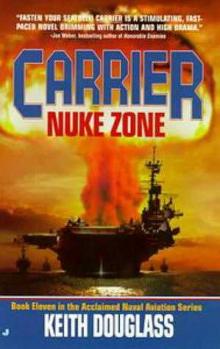 Nuke Zone c-11
Nuke Zone c-11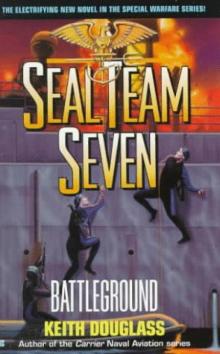 Seal Team Seven 6 - Battleground
Seal Team Seven 6 - Battleground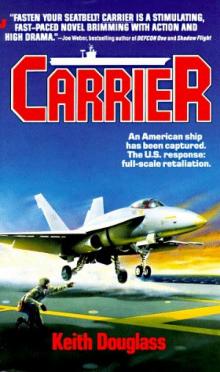 Carrier c-1
Carrier c-1 Island Warriors c-18
Island Warriors c-18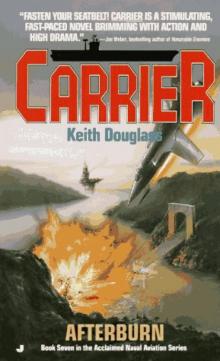 Afterburn c-7
Afterburn c-7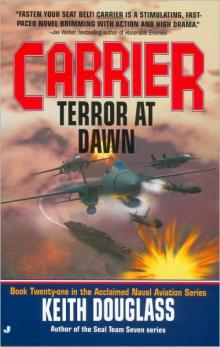 Terror At Dawn c-21
Terror At Dawn c-21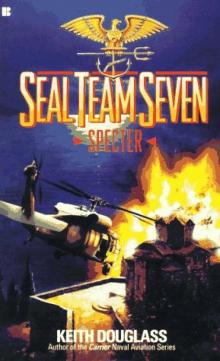 Specter sts-2
Specter sts-2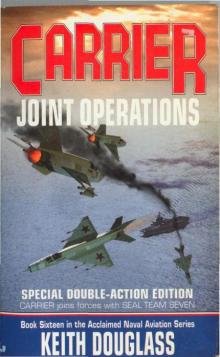 Joint Operations c-16
Joint Operations c-16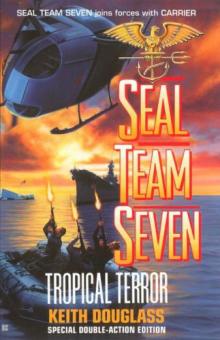 Tropical Terror sts-12
Tropical Terror sts-12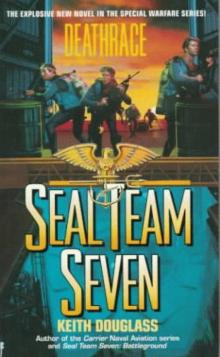 Seal Team Seven 7 - Deathrace
Seal Team Seven 7 - Deathrace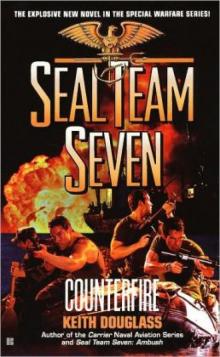 Counterfire sts-16
Counterfire sts-16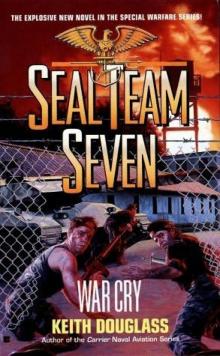 War Cry sts-9
War Cry sts-9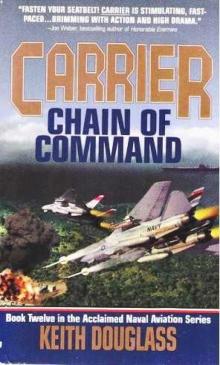 Chain of Command c-12
Chain of Command c-12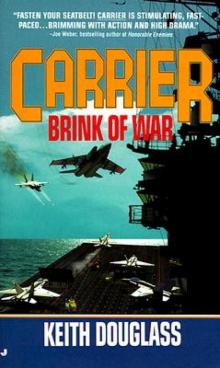 Brink of War c-13
Brink of War c-13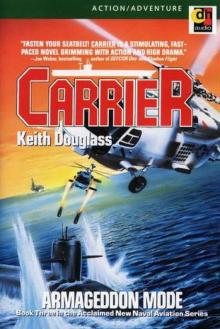 Armageddon Mode c-3
Armageddon Mode c-3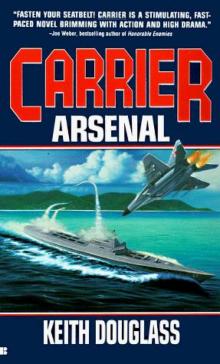 Arsenal c-10
Arsenal c-10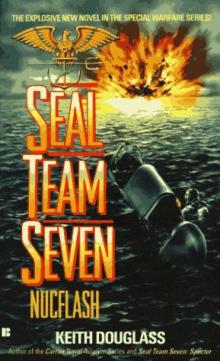 Nucflash sts-3
Nucflash sts-3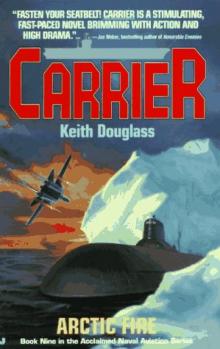 Arctic Fire c-9
Arctic Fire c-9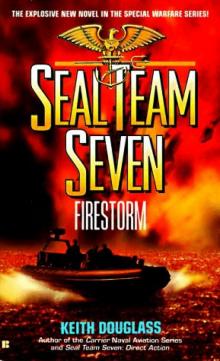 Firestorm sts-5
Firestorm sts-5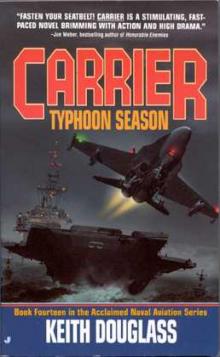 Typhoon Season c-14
Typhoon Season c-14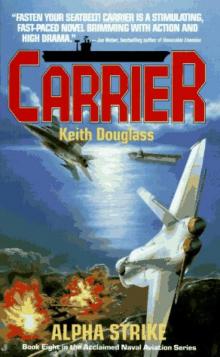 Alpha Strike c-8
Alpha Strike c-8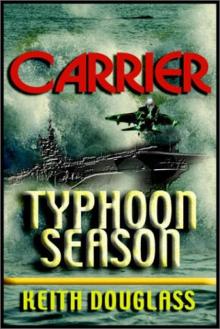 Carrier 14 - TYPHOON SEASON
Carrier 14 - TYPHOON SEASON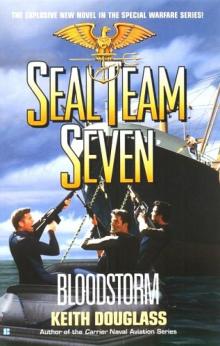 Bloodstorm sts-13
Bloodstorm sts-13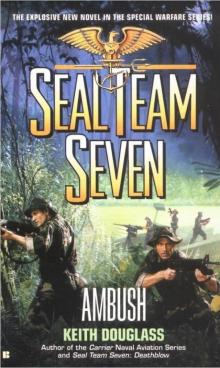 Ambush sts-15
Ambush sts-15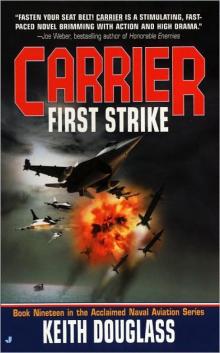 First Strike c-19
First Strike c-19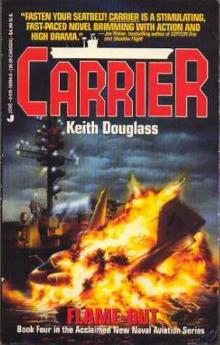 Flame Out c-4
Flame Out c-4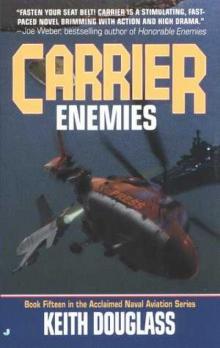 Enemies c-15
Enemies c-15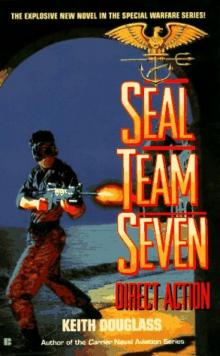 Seal Team Seven 04 - Direct Action
Seal Team Seven 04 - Direct Action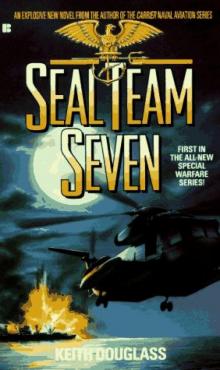 Seal Team Seven 01 - Seal Team Seven
Seal Team Seven 01 - Seal Team Seven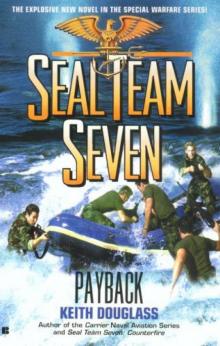 Payback sts-17
Payback sts-17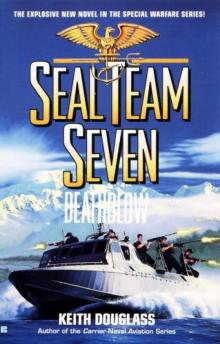 Death Blow sts-14
Death Blow sts-14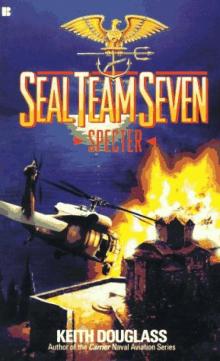 Seal Team Seven 02 - Spector
Seal Team Seven 02 - Spector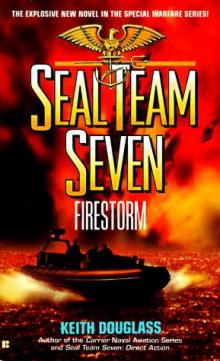 Seal Team Seven 5 - Firestorm
Seal Team Seven 5 - Firestorm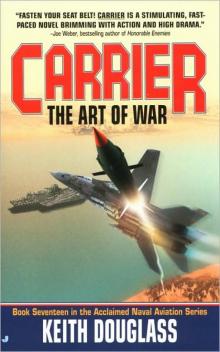 The Art of War c-17
The Art of War c-17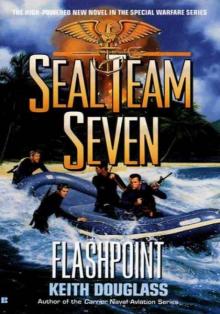 Flashpoint sts-11
Flashpoint sts-11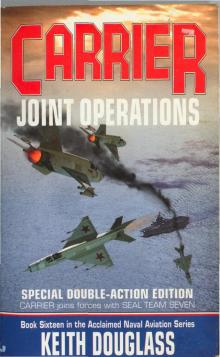 Carrier - Joint Operation Book 16
Carrier - Joint Operation Book 16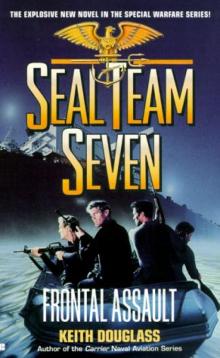 Frontal Assault sts-10
Frontal Assault sts-10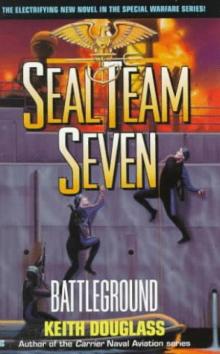 Battleground sts-6
Battleground sts-6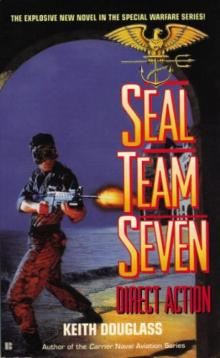 Direct Action sts-4
Direct Action sts-4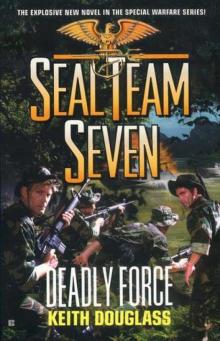 Deadly Force sts-18
Deadly Force sts-18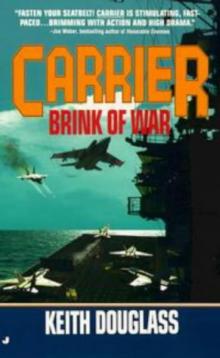 Carrier 13 - Brink of War
Carrier 13 - Brink of War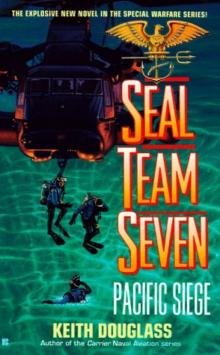 Pacific Siege sts-8
Pacific Siege sts-8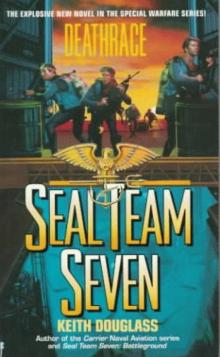 Deathrace sts-7
Deathrace sts-7